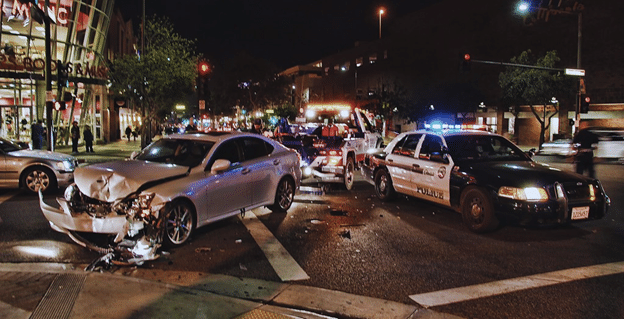Table of Contents
Accidents happen unexpectedly, and emotions often run high in such situations. Whether a minor fender bender or a more severe collision, disputes can quickly arise between those involved. Handling these disagreements calmly and lawfully ensures the problem doesn’t escalate further. Recognizing how to approach such disputes can help maintain order and protect your legal rights.
Stay Calm and Assess the Situation
The moments following an accident can be daunting. Fear, shock, and frustration are common reactions. Staying calm is essential to managing the scene effectively. Take a big breath and make sure everyone involved is safe. If there are injuries, call emergency services right away. Even if the injuries appear minor, having professional medical assistance on the scene is vital. Once safety is established, assessing the situation without jumping to conclusions or accusations is essential. Avoid blaming the other party or accepting responsibility, as this can complicate legal proceedings. The facts speak for themselves and focus on collecting relevant information instead.
Handling Uncooperative Drivers
In some cases, the situation may escalate if the other driver is uncooperative. This could be due to shock, anger, or a desire to avoid accountability. If the other driver refuses to give insurance information, remain calm and avoid confrontation. Instead, notify the police immediately.
Law enforcement officers are trained to mediate such situations and can ensure the necessary information is exchanged. Refusing to provide insurance information can also result in legal consequences for the other driver.
It’s essential to let the authorities handle these disputes instead of trying to force the issue yourself. Aggressive behavior, such as demanding information or raising your voice, may further escalate the conflict. Stay composed and wait for the police to arrive. They can document the scene and produce an official report that will be valuable later.
Gather Essential Information
Gathering information is one of the most critical tasks in any accident. Exchange names, phone numbers, driver’s license numbers, and insurance details with the other driver. It’s a legal requirement in most places to provide insurance information at the scene of an accident. Take photos of the damage to all vehicles, the surrounding area, and any injuries. These records can be crucial if the dispute continues beyond the scene and into the claims process.
You should also seek witnesses who may have seen the accident happen. Their testimony often provides an unbiased perspective on the events leading to the crash. Ask for their contact information and see if they will state the police or your insurance company.
Involve Law Enforcement
If a dispute cannot be resolved immediately, involving law enforcement is critical. Call the police to the scene even if the accident is minor, especially when emotions are running high. They will document the accident, interview witnesses, and provide an objective report that can serve as legal evidence. Ensure you give the officers all the information you have gathered without embellishing or speculating.
An official police report is often key evidence in insurance claims and potential legal disputes. It serves to clarify what happened and can help prevent a “he said, she said” scenario from derailing your case.
Avoid Self Incrimination
While it’s natural to want to apologize after an accident, be careful with your words. Any statement that sounds like an admission of guilt can be used against you in a claim or court case. Even saying something like, “I’m sorry, I didn’t see you,” may be interpreted as taking responsibility for the crash. Instead, stick to the truth while discussing the collision with the other driver, witnesses, and law police.
It’s equally important not to accuse the other driver of wrongdoing. Arguing at the scene will only increase tension and could lead to further legal complications. Allow authorities to determine fault based on the evidence provided.
Seek Legal Advice If Necessary
You may need legal assistance if the accident leads to a serious dispute that can’t be resolved on-site. In cases where the other driver denies liability, refuses to cooperate, or suffers significant damages or injuries, contacting a lawyer can help protect your rights. A lawyer can analyze the facts, negotiate with insurance companies, and represent your interests in court processes.
Final Thoughts
Handling disputes at the scene of an accident requires calmness, clear communication, and respect for legal procedures. By staying focused on gathering facts, involving law enforcement when necessary, and avoiding emotional outbursts, you can protect yourself and ensure that the situation is resolved fairly.


